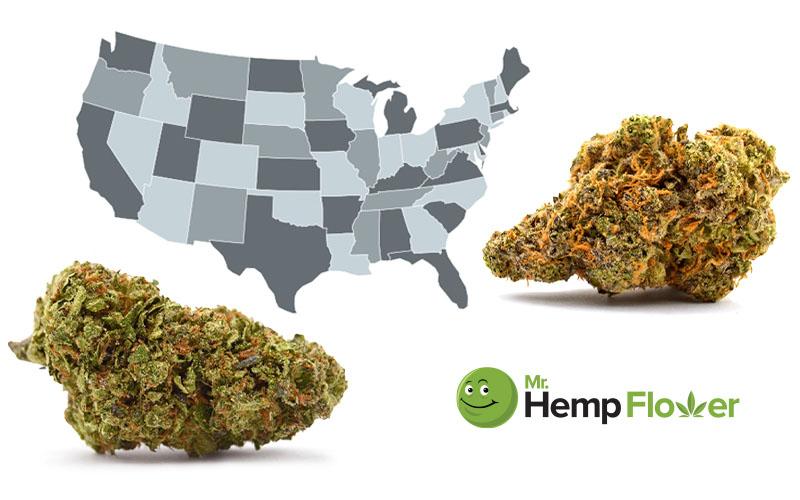Understanding THCA Legality: Arizona’s Legal Landscape
as cannabis continues to evolve in the eyes of the law and society, the nuances of its various compounds often stir curiosity and confusion.Among these compounds, tetrahydrocannabinolic acid (THCA) stands out-not only for its potential health benefits but also for its complex legal status. Arizona, a state making headlines with its progressive approach to cannabis, presents a unique tapestry of legislation that influences how THCA is perceived and utilized. In this article, we will delve into the intricate web of Arizona’s legal framework surrounding THCA, offering clarity on its legality, accessibility, and the implications for users and businesses alike. Whether you’re a patient seeking relief, a prospective entrepreneur, or simply a curious observer, understanding the legal landscape of THCA in Arizona is crucial in navigating this evolving terrain. Join us as we unravel the threads of legality that define this engaging compound in the Grand Canyon State.
Understanding the Difference between THCA and THC in Arizona
When exploring the realm of cannabis in Arizona, it’s crucial to distinguish between THCA (tetrahydrocannabinolic acid) and THC (tetrahydrocannabinol). Both compounds originate from the cannabis plant, yet their effects and legal classifications can differ significantly, creating a complex landscape for consumers and patients alike.
Key Differences:
- Chemical Composition: THCA is the non-psychoactive precursor to THC, meaning it has not undergone the decarboxylation process that converts it into THC.
- Psychoactivity: while THC is known for its psychoactive properties and is responsible for the “high,” THCA does not produce this effect, making it appealing for those seeking therapeutic benefits without intoxication.
- Legality: In Arizona, the legality of THCA may be viewed differently compared to THC. THCA-rich products might potentially be legally available, provided they meet specific regulatory criteria.
Another critical aspect is how smoking or heating THCA can lead to the conversion into THC. This transformation can take place quickly through methods such as vaporization or combustion, which may affect both consumers’ experience and legal perceptions. Understanding this conversion process is vital for users who might be concerned about the implications of their consumption choices.
To further clarify the legal implications,consider the following table outlining the legality and usage of each compound in Arizona:
| Compound | Legality in Arizona | Common Uses |
|---|---|---|
| THCA | Generally considered legal if derived from legal sources | Medicinal benefits,anti-inflammatory properties |
| THC | Legal for recreational and medicinal use under the state law | Psychoactive effects,pain relief,appetite stimulation |
Recognizing these differences is essential for anyone navigating the cannabis market in Arizona. Whether seeking relief, recreation, or education, understanding the nuances of THCA and THC can empower users to make informed decisions while remaining compliant with state laws.

Navigating Medical Marijuana Regulations and THCA Usage
Understanding the nuances of medical marijuana regulations in Arizona is essential for anyone interested in THCA usage. The state has made significant strides in legalizing certain cannabis derivatives, including tetrahydrocannabinolic acid (THCA), but navigating this landscape requires awareness of the specific rules to avoid legal pitfalls.
Here are some key points to consider:
- Patient Qualifications: Only patients with qualifying medical conditions can access THCA products legally. Conditions such as chronic pain, PTSD, and cancer are among the list approved by Arizona law.
- Medical marijuana Card: To purchase THCA, one must obtain a valid medical marijuana card. This requires a recommendation from a certified physician and completion of the application process with the Arizona Department of Health Services (ADHS).
- Product Types: THCA is usually available in various forms, including tinctures, capsules, and raw flower. Each product may have different concentration levels, so understanding how to choose the right one for your needs is crucial.
- Dispensary regulations: Not all dispensaries carry THCA products; it’s vital to verify that a location is licensed and offers the desired types of THCA before making a visit.
As awareness around THCA grows, so does the regulatory framework surrounding its use. Compliance with local laws is vital, including understanding how much THCA a patient may legally possess. Arizona has clear stipulations regarding possession limits based on the approved use of cannabis, encouraging responsible consumption.
| Aspect | Details |
|---|---|
| Legal Status of THCA | Legal for registered medical marijuana patients |
| Possession Limit | Up to 2.5 ounces |
| Qualifying Conditions | Includes chronic pain, cancer, and more |
| Card Validity | Valid for 2 years with renewal required |
Those interested in THCA should continually monitor changes in the legal environment as advocacy groups and legislative actions pursue further amendments to cannabis laws. Being informed can ensure that users not only enjoy the therapeutic benefits of THCA but also comply with Arizona’s evolving legal landscape.

Implications of Recent Legislation on THCA Legality
The recent legislative changes in Arizona have significantly reshaped the landscape for THCA (tetrahydrocannabinolic acid) legality.As more individuals and businesses explore the potential benefits of THCA-rich products, the law has adapted to address the evolving cannabis environment. Understanding these implications becomes crucial for consumers,growers,and dispensaries alike,ensuring they navigate their options within the new legal framework.
One of the most notable aspects of the new legislation is clarity on the status of THCA compared to its psychoactive counterpart,THC. Previously,there was ambiguity surrounding THCA,as it exists in a legal gray area as a non-psychoactive compound. However, with the latest updates, the legal status has been clarified, leading to a more structured approach to marketing and selling products containing THCA. Key elements of this clarity include:
- Designation of THCA as legal for medical use: Provided it meets specific criteria.
- Regulatory guidelines for labeling: Ensuring consumers are informed about THCA contents.
- Provision for the cultivation of THCA-rich strains: Allowing growers to focus on non-psychoactive products.
moreover, the legislation introduces a framework for the taxation and regulation of THCA products, similar to that established for other cannabis goods. This not only standardizes operations among suppliers but also helps in generating revenue for state initiatives. The following table summarizes key aspects of the newly imposed regulations:
| Aspect | New Regulation |
|---|---|
| Definition | THCA recognized as a legal non-psychoactive compound. |
| Medical Use | Allowed under strict regulations with specific health conditions. |
| Taxation | Taxed similarly to THC products, promoting equitable market practices. |
| Lab Testing | Mandatory testing to ensure purity and safety standards. |
These updates not only enhance the accessibility of THCA for consumers but also contribute to a safer and more regulated environment for all stakeholders involved. As Arizona moves forward with these changes, the implications of the legislation will continue to unfold, influencing everything from product progress to consumer awareness and education.
Consumer Rights and Access to THCA Products in Arizona
In Arizona, the emerging interest in THCA (tetrahydrocannabinolic acid) products has sparked discussions about consumer rights and access. Understanding how these rights play out within the state’s legal framework is essential for consumers, notably as the market continues to evolve. The accessibility of THCA products is governed by both state regulations and consumer protection laws, ensuring that individuals can engage safely and effectively with these products.
arizona has established a reputation for its progressive approach towards cannabis, including various compounds like THCA, which is non-intoxicating in its natural acidic form. As consumers explore their options, it is crucial for them to be aware of their rights.These rights include:
- The right to safe products: Consumers can expect that the THCA products available on the market meet safety standards mandated by state laws.
- Access to accurate information: Transparency regarding the product’s source, potency, and effects should be readily available to aid informed decisions.
- The right to fair treatment: Consumers are entitled to protection against unfair business practices, ensuring they receive quality products and services.
Furthermore, the legal framework allows for consumer advocacy in cases of disputes.Arizona law facilitates mechanisms for filing complaints against providers that do not adhere to established standards or misrepresent their THCA goods. Consumers can push for accountability through:
- State regulatory agencies: Organizations such as the Arizona department of Health Services oversee the regulation and distribution of cannabis products.
- Consumer advocacy groups: These groups work diligently to educate the public on rights and available resources, fostering a safe marketplace.
As the landscape for THCA products continues to change, remaining informed about evolving state regulations is imperative. A dedicated effort from consumers to understand their rights not only promotes personal safety but also enhances the overall integrity of the market.
Best Practices for Patients Seeking THCA Treatment Options
Patients seeking THCA treatment options should prioritize thorough research and informed decision-making. It’s essential to consult with healthcare professionals who have experience in cannabinoid therapies.These specialists can help clarify the benefits, risks, and personalized treatment approaches that may be suitable based on individual health conditions. Always ensure that you’re discussing your entire medical history, as it can significantly influence the effectiveness and safety of THCA options.
Understanding the legal landscape is crucial when exploring THCA options. Familiarize yourself with Arizona’s medical marijuana laws and the specific regulations concerning THCA. Here are some key points to consider:
- Certification: Obtain a Medical Marijuana card through a certified physician.
- Licensed Dispensaries: Procure THCA products only from state-licensed dispensaries.
- Dosage and Usage: Discuss recommended dosages and consumption methods with your healthcare provider.
Additionally, maintaining a clear understanding of product labels is vital. Seek products that have undergone rigorous testing for potency and contaminants. A good practice is to follow these guidelines:
- Third-Party Testing: Ensure that the product has been validated by an independent laboratory.
- Clear Labels: Look for comprehensive information regarding the THCA content and other cannabinoids present.
- Expiration Dates: Choose products that are within their shelf life for optimal effectiveness.
For practical clarity, consider a small reference table that summarizes the differences in cannabinoid types:
| Cannabinoid | Properties | Legal Status |
|---|---|---|
| THCA | Non-psychoactive; potential therapeutic benefits | Legal with medical card in AZ |
| THC | Psychoactive; euphoric effects | Legal with medical card in AZ |
| CBD | Non-psychoactive; widely used for various conditions | Legal in most forms |
By staying informed and proactive, patients can navigate the THCA landscape with confidence, ensuring that they make educated decisions tailored to their health needs.
Future Trends in THCA Legislation and Advocacy Efforts in Arizona
As the cannabis landscape continues to evolve, Arizona is at the forefront of emerging trends in THCA legislation and advocacy efforts. Stakeholders,including lawmakers,advocates,and the community,are actively engaging in discussions that shape the future of THCA,especially in the context of its medical and recreational use.the push for clearer regulations and the promotion of the benefits of THCA are driving conversations that could lead to progressive changes in state laws.
Advocacy groups are becoming increasingly influential in Arizona, with many organizations dedicated to promoting awareness about the therapeutic potential of THCA. These groups are focusing their efforts on:
- Education: informing the public and lawmakers about the unique benefits of THCA compared to other cannabis compounds.
- Research Funding: Advocating for increased funding for research to further understand THCA’s effects and therapeutic uses.
- Lobbying for Change: Working with legislators to draft and introduce bills aimed at accommodating THCA use in medical contexts.
Another trend gaining momentum is the potential for integration of THCA into existing medicinal frameworks. As patients seek holistic alternatives for their ailments, there’s a growing recognition of THCA’s non-intoxicating effects. This leads to legislative initiatives aimed at:
- Broadening Access: Ensuring that patients have easier access to THCA products.
- Quality standards: Establishing guidelines for the production and distribution of THCA products to ensure safety and efficacy.
As these advocacy efforts progress, emerging data may influence public opinion and regulatory approaches. this shift is indicative of a broader national trend towards embracing the therapeutic benefits of cannabis compounds. The evolving legal landscape in Arizona will likely reflect these trends, encouraging further investment in THCA research and development, as well as a more robust framework for its acceptance in both medical and recreational markets.
final Thoughts
navigating the intricate web of THCA legality in Arizona requires a clear understanding of both state laws and the evolving landscape of cannabis regulation. As the state continues to redefine its stance on cannabis and its derivatives, it is essential for enthusiasts, cultivators, and consumers alike to stay informed and engaged. Whether you’re a seasoned cannabis connoisseur or new to the scene, appreciating the nuances of THCA can empower you to make informed decisions within Arizona’s legal framework. with proper knowlege and a commitment to compliance, the potential for responsible exploration of THCA is not only significant but also a testament to the progress in cannabis legislation. As the sun sets on uncertainty and rises on informed dialog, remember that awareness is the key to unlocking the benefits of this fascinating compound in a safe and legal manner.Stay curious, stay educated, and embrace the journey ahead.


